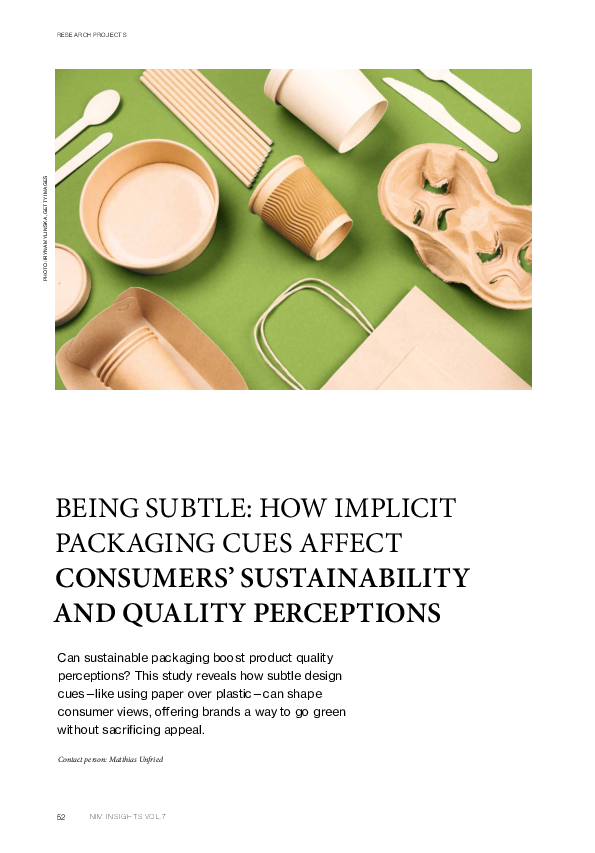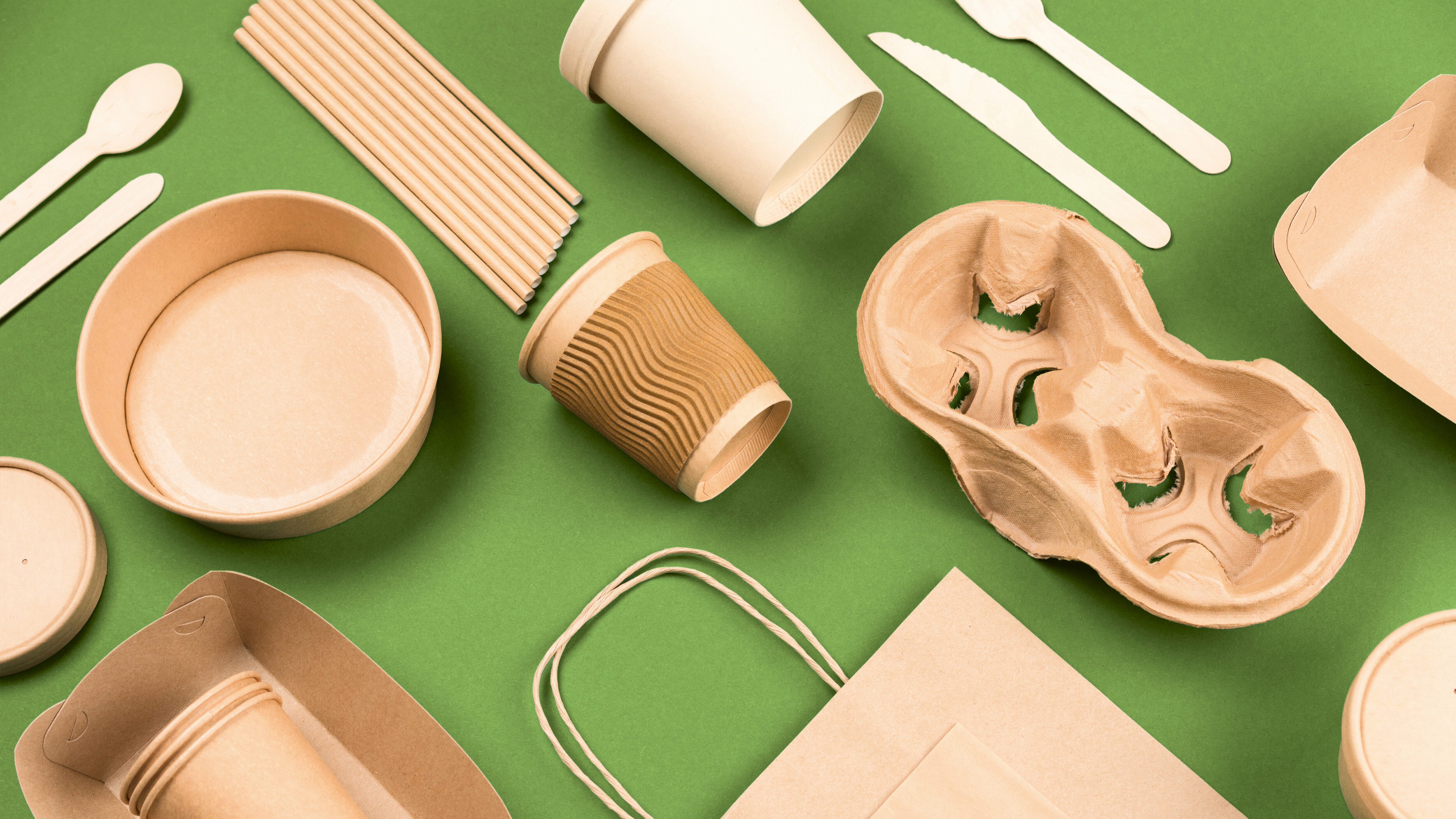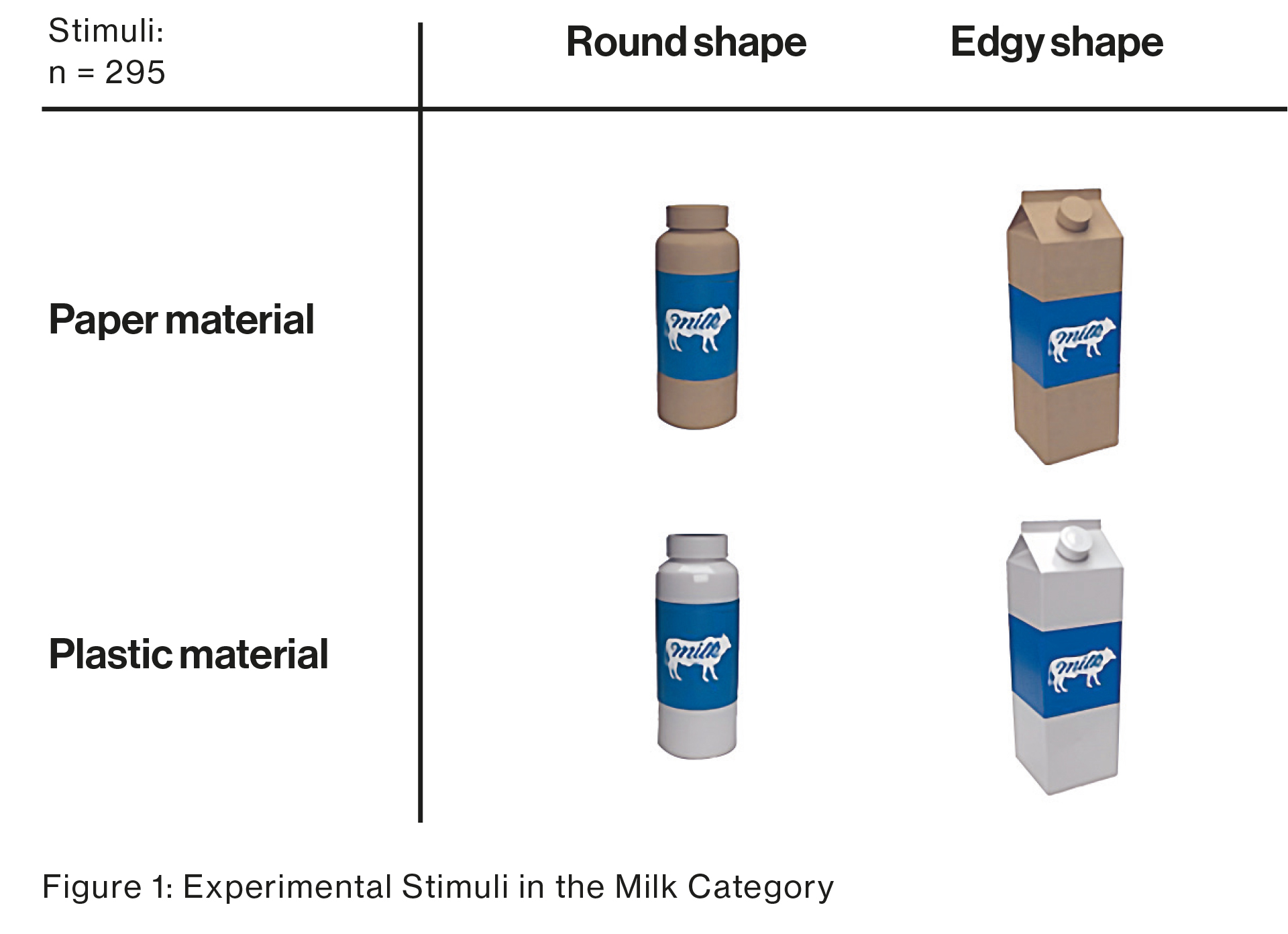Research
 Download
Download
Being Subtle: How Implicit Packaging Cues Affect Consumers’ Sustainability and Quality Perceptions

PHOTO: IRYNA MYLINSKA, GETTY IMAGES
Can sustainable packaging boost product quality perceptions? This study reveals how subtle design cues—like using paper over plastic—can shape consumer views, offering brands a way to go green without sacrificing appeal.
Packaging design plays a pivotal role in the fast-moving consumer goods (FMCG) sector. In recent years, the industry has placed increasing emphasis on sustainability, aiming to mitigate the environmental impact of packaging waste and pollution. This rising interest in environmental stewardship has prompted companies to actively support sustainable development through improved packaging designs, eco-friendly materials, and strategic marketing efforts.
Despite these initiatives, many retailers struggle to effectively communicate the benefits of sustainable packaging. While sustainability can be signaled through explicit cues—such as eco-labels or environmental claims—these are often met with skepticism and may even diminish product quality perceptions due to consumers’ beliefs about tradeoffs in resource allocation. In this study, which was supported by the Nuremberg Institute for Market Decisions (NIM), a team of researchers from Aarhus University focuses on the potential of implicit packaging cues—specifically, material and shape—to convey sustainability in a more subtle manner, potentially enhancing or preserving consumers’ perceptions of product quality.
Material Matters: Paper vs. Plastic
The study’s findings offer valuable insights for both scholars and practitioners. Most notably, paper packaging consistently resulted in higher perceived product quality compared to plastic across both utilitarian (milk) and hedonic (cookies) product categories.
Further analysis revealed that perceived sustainability played a mediating role in shaping quality perceptions. For the hedonic product, paper packaging improved sustainability perception, which in turn enhanced quality evaluations. For the utilitarian product, however, the mediation was more complex: Although paper was seen as more sustainable, it reduced direct quality perceptions, resulting in a competitive mediation effect. This indicates that product context plays a critical role in how sustainability and quality are jointly evaluated.
Why Subtlety Matters in Consumer Perception
Overall, the research demonstrates that implicit packaging cues—particularly material choices—can serve as effective levers for sustainability communication without undermining consumer trust or quality expectations. Unlike explicit green marketing, which may prompt skepticism, these subtle design elements work beneath the level of conscious awareness, encouraging more favorable consumer evaluations while aligning with sustainability goals.
Managerial Implications
Paper Outperforms Plastic: Across both utilitarian (milk) and hedonic (cookies) product categories, paper packaging led to higher perceived product quality compared to plastic. This contradicts common concerns that sustainable materials reduce quality perceptions.
Shape Matters Less: Packaging shape (round vs. edgy) had no significant effect on perceived product quality. Resources may be better spent optimizing materials than refining shape. Sustainability as a Quality Driver: Consumers viewed paper packaging as more sustainable, which positively influenced their quality perceptions— especially in products like cookies. For milk, a more complex relationship emerged: While paper was seen as more sustainable, it had a mixed effect on perceived quality, suggesting context-specific dynamics.
No Need for Explicit Green Messaging: Subtle, implicit cues (like packaging material) may improve perceptions of sustainability and quality without requiring overt green claims, avoiding possible consumer skepticism.
Project team
- Dr. Matthias Unfried, Head of Behavioral Science, NIM, matthias.unfried@nim.org
Cooperation partner
- Josephine Lerche Ruders, Aarhus University
- Anne Odile Peschel, Aarhus University
- Dr. Sascha Steinmann, Aarhus University
Contact

